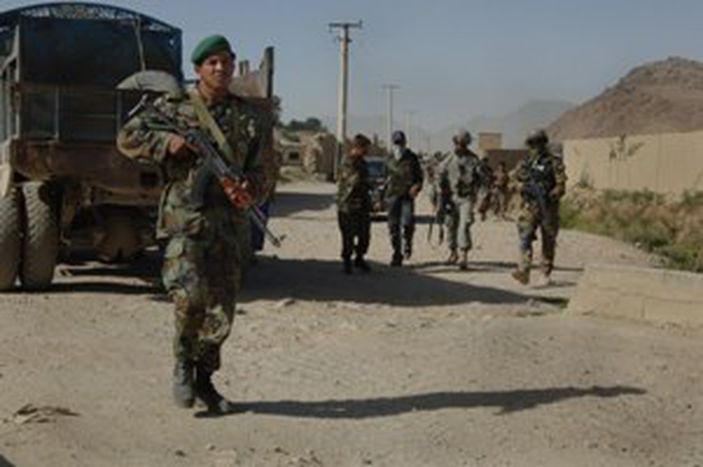
Europe caught in Afghan deadlock
Published on
Translation by:
 luke croll
luke croll
The recent demands made by NATO commanders in Afghanistan show that European troops will not be home soon
On September 28, the German Parliament decided to extend the mandate of its troops in Afghanistan by another year, as it was due to expire in the middle of October. Such a decision, coming from a country that since the Second World War had avoided military intervention abroad, shows Europe’s commitment to the Afghan democratic cause. When faced with increased fighting in the south of the country, Francesc Vendrell, the EU representative in Afghanistan, said in 2003 that “winning a battle does not mean the end of the war.” He implied that more troops would have to be sent to the area. There has been little European reaction. The North Americans announced on September 28 that 12,000 of their soldiers already on the ground would work under the auspices of the ISAF (International Security and Assistance Force). This force, made up of 20,000 soldiers, most of them Europeans, was deployed on July 31.
A hot potato for Europe
Despite its military cooperation, the German government guaranteed that its “2,900 soldiers will not leave the north of the country,” where fighting is less intense than in the southeast, where the British are fighting against “a true large-scale rebellion”, according to statements made by UN civil servants in the region. In reality, the German government faces criticism from the left and the Greens due to its lack of control over Afghan opium smuggling. They are also afraid that their involvement will encourage terrorist attacks on German soil. French, Turkish, Danish and Italian troops are staying far from the south and Spain wants to restrict its 8,000 soldiers to the northeast. As for the rest, nobody wants to send more troops. Only Poland has announced that 1,000 extra soldiers will be deployed – those it withdrew from Iraq this year. This announcement created a crisis which almost brought down a government elected only eight months ago.
Limited efficiency
The British and the Americans are appealing to European governments for more troops because they face a crisis situation in the southeast of Afghanistan. UNAMA, the United Nations Assistance Mission in Afghanistan, is responsible for disarmament and organizing elections. One of its civil servants states that, “Because the rural people are conservative, they welcome the Taliban: they pay generously thanks to money from opium smuggling”. This same money is used by insurgents to “swell their ranks with hundreds of foreign mercenaries who earn six times more than regular soldiers in the Afghan Army, and with Afghans who are disenchanted by the British intervention in Pashtun (the most conservative tribe) areas,” he adds. Many civilians are abducted, such as Diego Rojas, a Colombian volunteer who worked for our publication. He was later set free on September 29. These kidnappings are not, in general, “political in nature, but for ransom,” says UNAMA, whose officials, “negotiate every day with the Taliban to organize reconstruction and stop them from attacking the NGOs”.
Fighting, yes, but also negotiating and protecting
In Afghanistan, troops do more than fight battles. They also negotiate with warlords following the murder of the Civil Aviation Minister, Mirwais Sadiq, in 2004. His father was a powerful governor of Herat province and a former warlord. He accused a government commander of being responsible for the assassination. Negotiations were necessary following large-scale rioting in Herat, resulting in the deaths of more than 100 people. UNAMA workers again state that, “in this field, Europeans are more efficient than the Americans”.
In the North, where most European troops are based, the reconstruction of the country is more advanced thanks to soldiers who act as protectors. At times, however, these are not successful. “If the funding of the European ECHO programme and the American USAID programme isn’t spent on something that did not appear in the budget, it must be returned. This means that planning is often done in haste and is not thoroughly thought out,” says a UN worker. Nevertheless infrastructure is developing outside the major Afghan cities.
Faced with these difficulties, NATO commanders believe that the peacekeeping and reconstruction work will take several years, and that it will take decades before Afghanistan becomes prosperous.
Translated from Europa no mueve ficha en Afganistán


